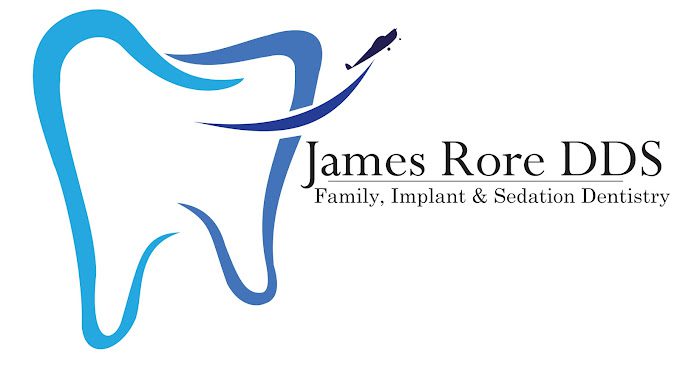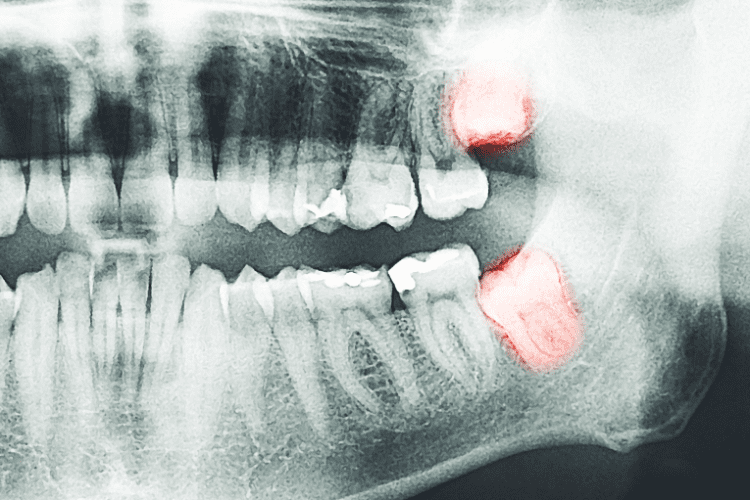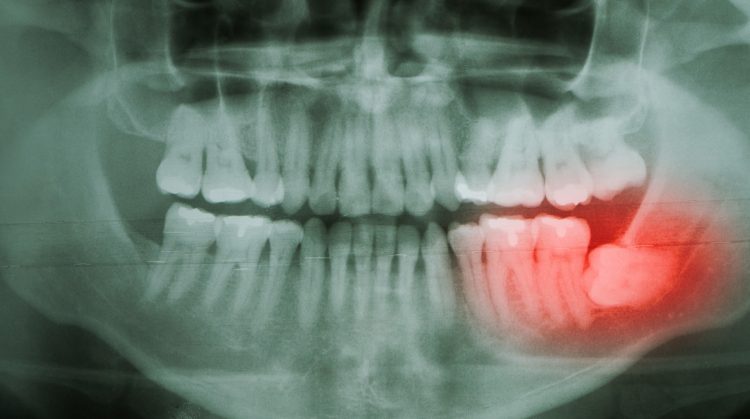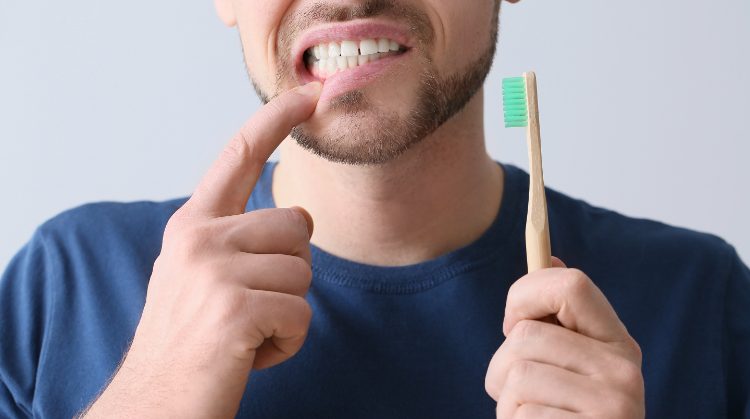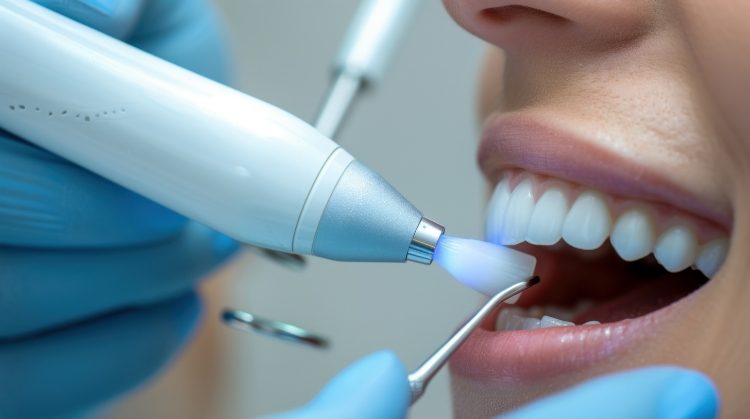Are you experiencing persistent jaw pain, swollen gums, or difficulty opening your mouth fully, and wondering when to remove wisdom teeth?
These could be clear indicators that it’s time to consider wisdom teeth removal, a common oral surgery that millions of people undergo to prevent serious dental complications and maintain optimal oral health.
At James L. Rore, DDS in Stockton, CA, we understand how confusing and stressful it can be to determine when to remove wisdom teeth and navigate the decision-making process.
This guide will cover the causes of wisdom teeth problems, warning signs to watch for, and the most effective treatment approaches to help you make informed decisions about your oral health.
When to Remove Wisdom Teeth: Common Causes
There are several reasons why wisdom teeth often require removal rather than being left in the mouth. The most common causes include insufficient space, improper positioning, and complications that affect overall oral health. Here are the key factors that determine when to remove wisdom teeth:
- Insufficient Jaw Space: Modern jaws are often too small to accommodate all 32 teeth, causing wisdom teeth to become impacted and creating pressure that affects adjacent teeth.
- Impaction Problems: When wisdom teeth cannot fully emerge through the gum tissue, they become trapped, leading to pain, infection, and potential damage to surrounding structures.
- Poor Positioning: Wisdom teeth that erupt at the wrong angles can damage neighboring molars, create cleaning difficulties, and contribute to bite alignment problems.
- Infection Risk: Partially erupted wisdom teeth create pockets where bacteria accumulate, leading to pericoronitis and other serious infections that require prompt treatment.
- Crowding Issues: Late-erupting wisdom teeth can push other teeth out of alignment, potentially undoing years of orthodontic treatment and affecting your bite.
- Cleaning Difficulties: The location of wisdom teeth makes proper brushing and flossing nearly impossible, leading to decay and gum disease that affect overall oral health.
If you’re experiencing any of these issues, you’re not alone. Most people develop problems that help determine when to remove wisdom teeth, but the good news is that modern extraction techniques make the process safe and comfortable.
Signs Indicating When to Remove Wisdom Teeth
Recognizing the warning signs that indicate when to remove wisdom teeth is crucial for preventing serious complications and maintaining your oral health. Common symptoms include:
- Persistent jaw pain or stiffness that worsens over time, especially when opening your mouth or chewing food near the back molars.
- Swollen, red, or tender gums around the back of your mouth that may bleed during brushing or eating certain foods.
- Recurring infections or bad breath that doesn’t improve with regular oral hygiene may indicate trapped bacteria around wisdom teeth.
- Difficulty opening your mouth fully or experiencing a locked jaw sensation that interferes with eating, speaking, or daily activities.
- Headaches or sinus pressure can be caused by upper wisdom teeth pressing against the sinus cavities, resulting in ongoing discomfort.
- Damage to adjacent teeth, including decay, enamel wear, or shifting, that occurs when wisdom teeth crowd or press against neighboring molars.
If these symptoms sound familiar, it may be time to consult with a dental professional who can evaluate when to remove wisdom teeth and prevent further complications.
Why Choose James L. Rore, DDS?
At James L. Rore, DDS in Stockton, CA, we understand that every patient’s concerns about when to remove wisdom teeth are unique and often anxiety-provoking. That’s why we provide compassionate, personalized care backed by years of expertise in oral surgery and wisdom teeth extractions.
Our experienced oral surgery team brings extensive knowledge in determining when to remove wisdom teeth and performing safe, comfortable extractions. We tailor every treatment approach to suit your specific situation, anxiety level, and recovery preferences. Your comfort and peace of mind are our priorities, and we’re committed to helping you achieve optimal oral health with minimal stress.
When you choose James L. Rore, DDS, you choose a team that prioritizes your well-being and provides clear guidance about when to remove wisdom teeth. Let us help you maintain a healthy, pain-free smile for years to come.
Conclusion: Your Path to Optimal Oral Health After Wisdom Teeth Removal
Determining when to remove wisdom teeth is a journey that requires professional evaluation and the proper surgical support.
With the proper knowledge, a trusted partner like James L. Rore, DDS, in Stockton, CA, and a clear focus on preventive oral health and long-term wellness, you can transform a potentially problematic situation into an opportunity for improved comfort and dental health.
Each step of the wisdom teeth removal process helps protect your existing teeth, prevent future complications, and maintain your quality of life.
Choose a dental provider who truly understands the importance of timing wisdom teeth removal appropriately and can confidently guide you toward the best decision for your situation.
Schedule your wisdom teeth evaluation today at James L. Rore, DDS, in Stockton, CA!
Frequently Asked Questions About When to Remove Wisdom Teeth
1. What’s the best age to determine when to remove wisdom teeth?
The ideal time to evaluate when to remove wisdom teeth is typically between the ages of 17 and 25, before the roots have fully developed and while healing is at its fastest. Early assessment enables proactive treatment planning and facilitates a smoother recovery.
2. How do I know when to remove wisdom teeth if they’re not causing pain?
Even without pain, wisdom teeth may need to be removed if they’re impacted, causing crowding, are challenging to clean, or show signs of decay. Regular dental X-rays help determine when to remove wisdom teeth before problems develop.
3. Is there ever a time when removing wisdom teeth isn’t necessary?
Some people with adequate jaw space, proper positioning, and excellent oral hygiene can keep their wisdom teeth. However, ongoing monitoring is essential to determine if circumstances change regarding when to remove wisdom teeth.
4. What happens if I wait too long to decide when to remove wisdom teeth?
Delaying removal when indicated can lead to more complex extractions, increased risk of complications, damage to adjacent teeth, and longer recovery times. Early intervention often results in easier procedures.
5. How long does recovery take after deciding when to remove wisdom teeth?
Most patients recover within 3-7 days to resume normal activities, with complete healing typically taking 2-4 weeks. The timing of wisdom tooth removal and your age at the time of removal can affect recovery speed and comfort.
